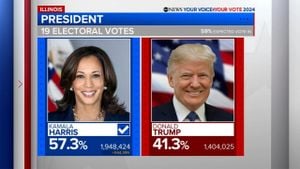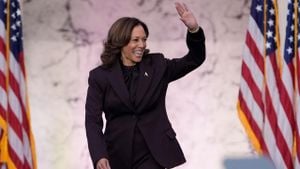Walt Disney Co. has agreed to pay $43 million to settle allegations of gender pay disparity, marking a significant step toward addressing issues of wage inequality within its workforce. The lawsuit, dating back to 2019, was initiated by LaRonda Rasmussen, who alleged she discovered her male counterparts were earning significantly more than her, including one with several years less experience making over $20,000 annually more.
This class action involved approximately 9,000 current and former female employees who claimed they were underpaid compared to their male peers. The settlement means Disney will also hire labor economists to perform annual pay equity analyses for its employees at or below the vice presidential level for the next three years, likely revising internal pay structures to improve equity.
The total payout is substantially lower than initial estimates which suggested it could reach around $300 million. Disney managed to negotiate the terms before the scheduled trial date, set for May 2025. This decision, though, is contingent upon approval by a judge.
According to lawyers representing the plaintiffs, the lawsuit illustrated how Disney reportedly paid female employees around $150 million less than male employees over the course of eight years. The analysis of Disney’s pay practices, which the lawsuit relied upon, showed female staff earned about 2% less than their male coworkers, prompting serious concerns about systemic discrimination within the organization.
Disney, for its part, has maintained its commitment to fair pay practices throughout the proceedings and has stated it will continue to uphold equitable compensation. The company has long grappled with public and legal scrutiny over gender and racial pay disparity, reflecting larger systemic issues facing corporate America today.
Rasmussen's courage to bring this case against one of the world’s largest entertainment companies has been commended by advocates and legal representatives. They argue this lawsuit exemplifies the need for transparency and accountability within major corporations. The pressure for companies to justify their pay practices can only increase as discussions around gender equality gain momentum.
"We have always been committed to paying our employees fairly and have demonstrated our commitment throughout this case, and we are pleased to have resolved this matter," said Disney’s spokesperson. This sentiment reflects the company’s attempt to quell dissent and assure stakeholders of its dedication to equitable compensation.
Although Disney has not admitted any wrongdoing, the settlement signals recognition of the concerns raised by its workforce. The company’s decision to engage external economists to evaluate pay practices verifies the pressing nature of the allegations and suggests it is taking steps toward realigning compensation structures.
Gender pay inequality remains pervasive across many industries, and this case at Disney puts the spotlight on the entertainment sector's role. The results of the settlement will not only provide some financial restitution for the plaintiffs but also may set a precedent for how Disney approaches pay equity going forward, potentially reshaping labor policies within the broader entertainment field.
While many women applauded this step, they remain cautious, recalling how it is only one among many battles to be won on the path toward workplace equality. Advocates argue these types of settlements should serve as motivating reminders to corporations everywhere of the need to earnestly revise their salary practices. They often call for more than just monetary settlements, insisting on systemic changes to eradicate pay gaps.
This case emphasizes the importance of collective actions and the support network women can build to combat workplace injustices. The coming months will reveal how Disney will implement changes prompted by this case, and whether such transformations can uplift gender parity standards across the entertainment industry.
The ramifications of this agreement extend beyond just Disney; they could influence industry standards and inspire similar legal actions by women facing pay disparities elsewhere. Such cases could potentially redefine workplace culture not only within gigantic organizations but also within small and mid-sized companies, prompting widespread industry reviews of pay structures.
Looking forward, stakeholders and employees alike will be watching Disney’s actions closely as it seeks to repair public trust and commitment to fair employment practices. The resolution of this lawsuit may represent more than just numbers on paper, standing instead as symbol of hope for any institution striving toward fairness and equity.



